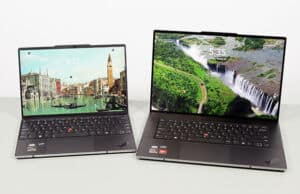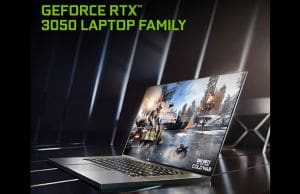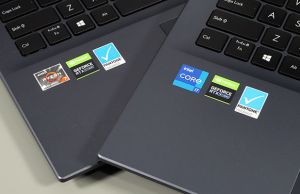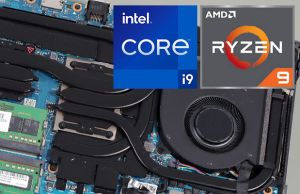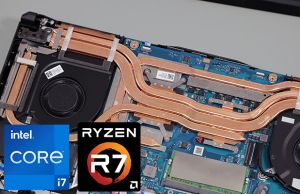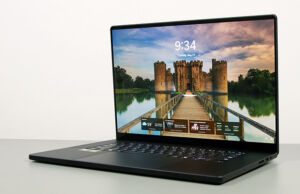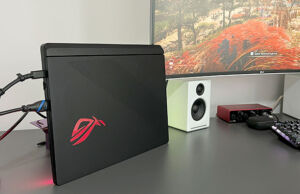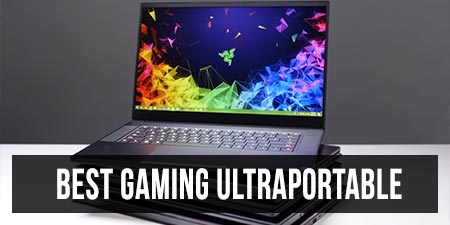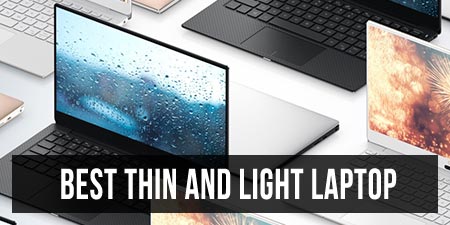Table of Contents
While many technology enthusiasts and experts have seen ultrabooks as possible replacements for either regular laptops or netbooks, if you think things through Intel’s new ultraportable computer should be seen as the number one competitor for other computer devices.
We are talking of course about tablet PCs, which have gained a lot of popularity during recent years especially due to iPad’s professionalism and quality. But are tablets capable of resisting the attack of new, lightweight and strong ultrabooks?
That’s what we will try to find out in the following lines, where we will take a look at the most important similarities and differences between tablets and ultrabooks.
What are ultrabooks, what are tablets
About what are ultrabooks, their characteristics and attributes we have talked in the past, including in a couple of recent articles where we compared them with netbooks and regular laptops. So as not to bore you very much, let’s just say that ultrabooks are supposed to be thin, slim and light 11 or 13-inch notebooks, powered by Intel Sandy Bridge processors and featuring large and comfortable keyboards (sometimes backlit), as well as flash-based SSDs and pretty strong and reliable batteries.
For the best available ultrabooks, also see this other article on the site.
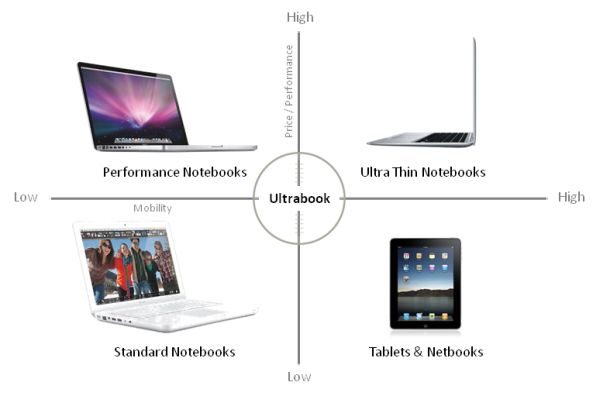
Ultrabooks and tablets are very different, but should be equally as popular in the near future.
A tablet personal computer, on the other hand, is a tablet-sized computer that also has the key features of a full-size personal computer, if we are to trust the Wikipedia definition that can be found here. If we are to elaborate a bit, we must say that a tablet is a small laptop computer, equipped with a touchscreen and lacking in most cases a regular keyboard.
In terms of hardware, tablets are usually pretty strong, but can’t compete against regular laptops, while in terms of software, they are powered by special mobile operating systems, like Android or iOS.
While there are a lot of Android-based tablets, the most popular slate is Apple’s iPad 2, sporting a 9.7-inch screen, running the iOS operating system and featuring a 1 GHz dual-core Apple A5 processor, as well as 512 MB of RAM and 16, 32 or 64 GB of internal storage space.
Here’s a video comparing the iPad 2 with an ultrabook:
Tablets vs ultrabooks: similarities
While at a first glance you could be tempted to say that these are very different computer devices, if you look closer you will find a couple of important similarities too.
First of all, both ultrabooks and tablets are extremely thin, light and therefore very portable. Practically, all of the ultrabooks already released or due to be released soon measure 0.6-0.7 inches thick, which is just over the iPad 2’s depth.
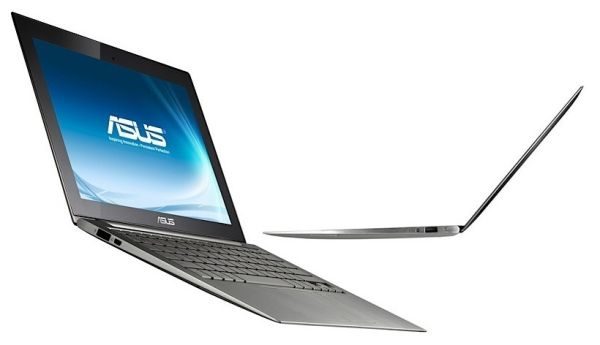
The Asus UX21 and 31 are the best ultrabooks so far.
Secondly, even though you can’t say that they look very similar, both ultrabooks and tablets have a very strong aesthetical sense, being targeted towards people who care how they look and how their ‘’properties’’ look as well.
Surprisingly enough, the number of ports and connectivity options is also very similar, with both tablets and ultrabooks usually featuring no more than two USB ports, as well as microHDMI, Bluetooth and Wireless.
That’s pretty much all the common ground we can see right now between ultrabooks and tablets and, while some of you might find a couple of extra similarities, we wouldn’t want to stretch these.
Ultrabooks vs tablets: differences
As you might expect from the number of similarities found earlier, the number of differences is very large and important.
First of all, tablets don’t usually come with physical keyboards, like ultrabooks do, but sport touchscreens. That is probably the biggest disadvantage that slates hold right now, giving that they are less functional than a regular laptop or an ultrabook and it is pretty difficult to accurately and quickly type on the iPad 2 or just about any other tablet at the moment.
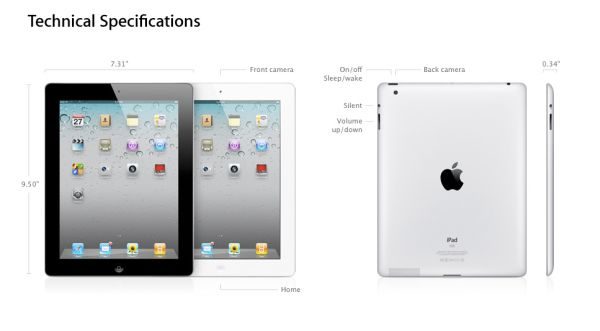
Apple’s iPad 2 is by far today’s most succesful tablet PC.
Another tablet disadvantage refers to the hardware, which is clearly inferior to the ultrabooks’ tech specs. The iPad 2, for instance, as we already mentioned, features a 1 GHz processor and 512 MB of RAM, while most ultrabooks come with snappy 1.6 or 1.7 GHz chipsets and with 2 GB of RAM.
In terms of storage space, as well as in terms of screens, ultrabooks are again better, featuring higher-resolution displays and larger solid-state drives.
As for the software, the tablets and ultrabooks are again very different, but it is pretty difficult to clearly state which one is better. Ultrabooks run Windows, as any other laptop, while tablet PCs run Android or iOS (the iPad 2).
On the other hand, tablets are lighter and more portable than ultrabooks, usually weighing somewhere around 1.2-1.5 pounds (ultrabooks go for 2.4-2.9 pounds). They have rotating screens as well, which could prove very nice when traveling.
The battery life is also superior when talking about tablets, with the iPad 2 being able to easily run for nine or ten hours between charges. Ultrabooks are themselves pretty capable in terms of autonomy, but can’t go for more than six hours on a single charge.
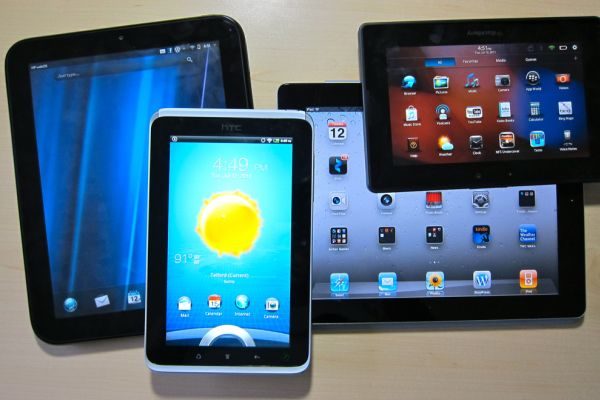
Tablets are more portable and have stronger batteries than ultrabooks, but are overall slower and less functional.
Finally, in terms of pricing, ultrabooks are clearly more expensive, going for 1,000 dollars or even more. Tablets, on the other hand, usually go for 400-500 bucks, but can be bought for as little as 200 dollars as well.
Wrap-up
Even though ultrabooks hold a large number of strong points in a battle with tablets, it is pretty clear that both types of computer devices will prove popular in the near future. You should check out our ultrabook tests, if you need more details about these computers.
All in all, ultrabooks and tablets are very different and target different people with various needs. They are all fashionable, powerful and functional enough to be top choices for any technology enthusiast and should therefore complete each other rather than eliminate one another from the market.


